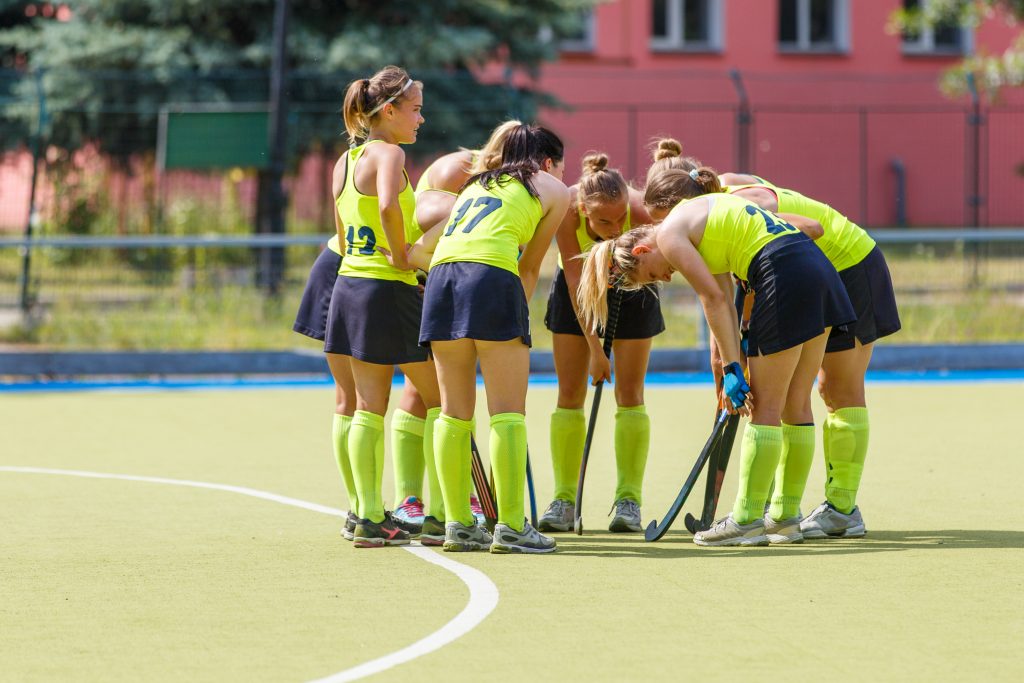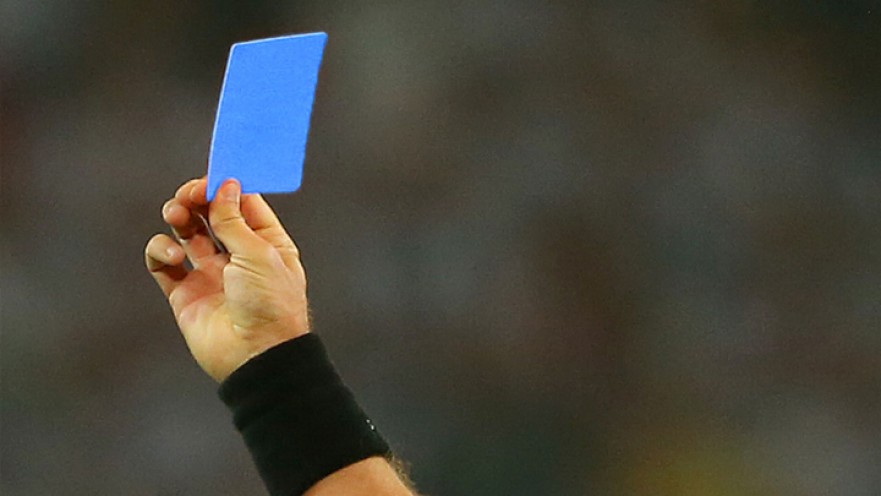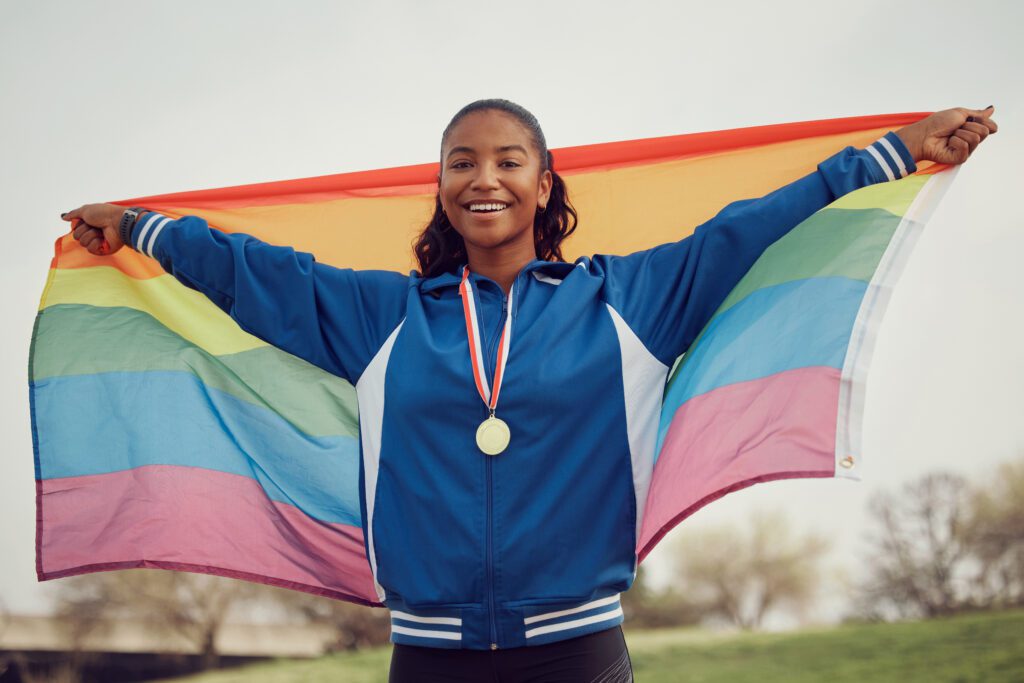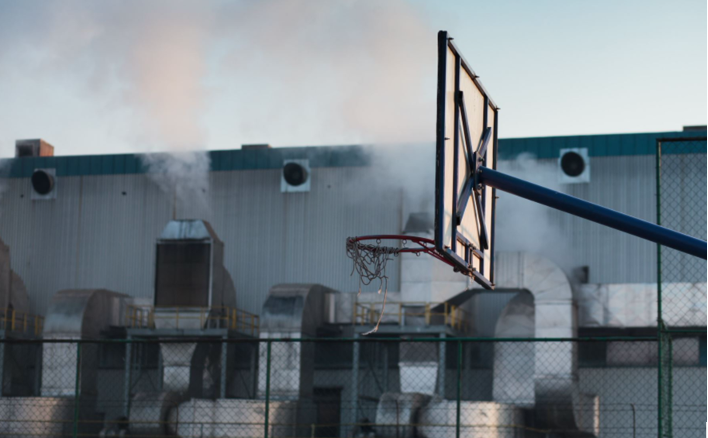Playing devil’s advocate: How to avoid groupthink in sport environments

“This is how we’ve always done it.” You’ve heard that phrase before. Whether you’ve said it or heard it said, it’s clear that groupthink is present in every corner of our society. When we fail to consider fresh perspectives in favour of tradition during decision making, we limit ourselves and our abilities. Take it from…
Protection and retention of officials
Community organizations across the country are experiencing a shortage of sports officials. Soccer referees have been in short supply during the pandemic, a problem worsened due to bad sideline behaviour of parents, players and coaches. The Teal Shirt Campaign allows first year referees to identify themselves on the job and encourages spectators to show respect…
Supporting the LGBTQ+ community in sports
Sports environments can be unwelcoming for LGBTQ+ youth. According to a national survey, 24.7% of LGBTQ+ youth reported avoiding athletic fields/facilities at school because they felt unsafe and 11.3% reported that they were discouraged from playing sports by faculty members. Promoting safe sports environments for LGBTQ+ youth has been shown to be beneficial for their…
“That’s a Blue for you”: Referee experiences managing concussion injury risk in Canadian amateur rugby

People who are into sports like soccer and rugby are familiar with yellow and red cards. When an official presents a player with a yellow card, that’s a warning that they’ve committed an offence on the playing field. A red card means the player must leave the field immediately and can no longer take part…
Empowering athletes for Safe Sport
A significant culture change in sport is needed to address athlete maltreatment, experts say. One way to bring about change is to amplify athletes’ voices. Including athletes in decision-making can help address the power imbalances that often underpin maltreatment in sports.
How coaches and sport organizations can create a better experience for LGBTQ+ youth

Participating in sport can have many benefits for lesbian, gay or bisexual (LGBTQ+) youth. Sport has the potential to bring joy, distraction and mindfulness that frees LGBTQ+ youth from worry and fear in other domains of their lives. Sport can also provide important social connections and support for LGBTQ+ youth as they negotiate coming out….
Using stakeholder engagement as real-world data to inform organizational change

Over the past 6 months, we’ve seen ongoing news of alleged maltreatment of athletes who compete at national and international levels. These reports of maltreatment in artistic swimming, gymnastics, bobsleigh and skeleton, and most recently boxing have sparked increased discussion by both the sport sector and the public. These reports also led to action by the…
Let’s talk about air pollution: Keeping outdoor sport participants safe

In honour of Clean Air Day (June 8), SIRC partnered with Health Canada to present information about air pollution and how it can affect the health and performance of outdoor sport participants. We also highlight the ways coaches, officials and sport organizations can adapt to keep all participants safe during outdoor sporting activities. In recent…
Inclusion by design
Designing inclusive programs in sport is not an easy task. Inclusion requires intention, honest conversations, flexibility and innovation. It means using individual power and privilege to create safe and accessible spaces for all Canadians to engage in sport. Learn about how Canadian sport policies and programs have evolved to support the development of safe and…
Independence in Safe Sport
The importance of Safe Sport and how it can be further integrated into Canadian Sport is an ever-evolving process for many sport organizations. A key question for many organizations centers on what “independence” means in the context of investigative processes related to Safe Sport. A group of researchers at the University of Toronto led by…